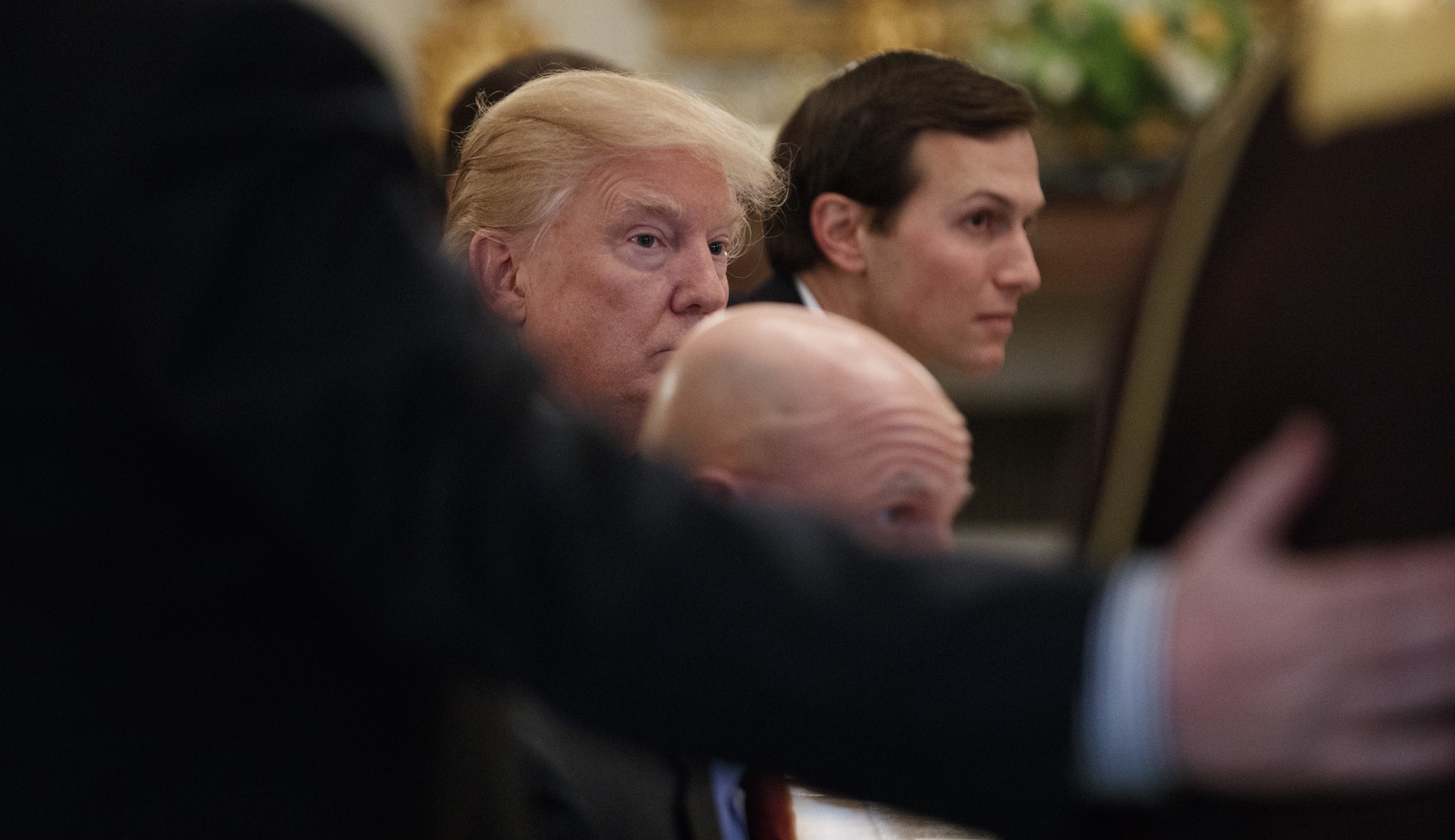Top Trump adviser Jared Kushner overpowered opposition from the Pentagon, State Department, and the White House national security adviser in his bid to boost the alliance between Saudi Arabia and Israel, the administration’s first move in Middle East policy, Bob Woodward’s book reveals.
In Fear, Kushner’s clout in the West Wing is confirmed in Woodward’s telling of how President Trump’s unexpected trip to Saudi Arabia and Israel in May 2017 came about and how it set into play efforts to rekindle Middle East peace talks and isolate Iran.

Early in the new administration, Woodward writes, national security intelligence expert and Middle East director Derek Harvey began to raise concerns that Iran-backed Hezbollah forces in Lebanon were threatening Israel.
He warned of “catastrophic war,” but felt that Secretary of State Rex Tillerson, Defense Secretary Jim Mattis, and national security adviser H.R. McMaster “didn’t appreciate” the situation, writes Woodward.
So he visited the influential Kushner, who eventually suggested that Trump make his first overseas trip to Saudi Arabia and Israel, both foes of Iran and both given the cold shoulder by the Obama administration which had cut a controversial Iran missile deal the president hated.
“A summit in Saudi Arabia would also benefit Israel. The Saudis and Israelis, both longtime foes of Iran, had both open and important backchannel relations. Harvey knew to focus rigorously on such a suggestion from Kushner, who was obviously not just another senior presidential adviser. The son-in-law was speaking with at least the president’s knowledge if not his encouragement,” writes Woodward.
As Kushner and Harvey pushed the Saudi-Israeli trip, the opponents lined up to gently push back. According to Woodward, McMaster, Mattis, Tillerson, and Energy Secretary Rick Perry were a no.
[Byron York: Same old story: New Woodward book raises old questions about methods]

At a key meeting in March, “No one supported the idea of a summit in two months as Kushner was now proposing,” says the book.
No matter. Kushner dropped the hammer, says the book. “‘I understand this is very ambitious,’ the president’s son-in-law said. He stood. ‘I understand the concerns. But I think we have a real opportunity here. We have to recognize it. I understand we have to be careful. We need to work this diligently, as if it’s going to happen. And if it looks like we can’t get there, we’ll have plenty of time to shift gears. But this is an opportunity that is there for the seizing.’ No one said no.”
Fear reveals that Kushner also cut the key agreement to have Saudi Arabia buy millions of dollars in arms, a key reason for Trump’s visit to the area and a sign the nation was ready to counter Iran.
In pre-trip negotiations the Saudis apparently didn’t commit to buying enough, so, Woodward writes, Kushner picked up the phone and rang 31-year-old Mohammed bin Salman, son of the Saudi king, who he felt was the future leader of the kingdom.
It worked.
Kushner also broke protocol when he invited the prince to the White House where a lunch included the president. And still Tillerson and Mattis said the Saudi-Israel trip was happening too fast.
No matter. It occurred in May 2017 and set the stage for other behind-the-scenes policy victories for Kushner.
And it might have helped the prince too. As Woodward writes, following the Trump summit, “The next month Saudi king Salman at age 81 appointed MBS age 31, the new crown prince and next in line to lead the Kingdom perhaps for decades to come.”

